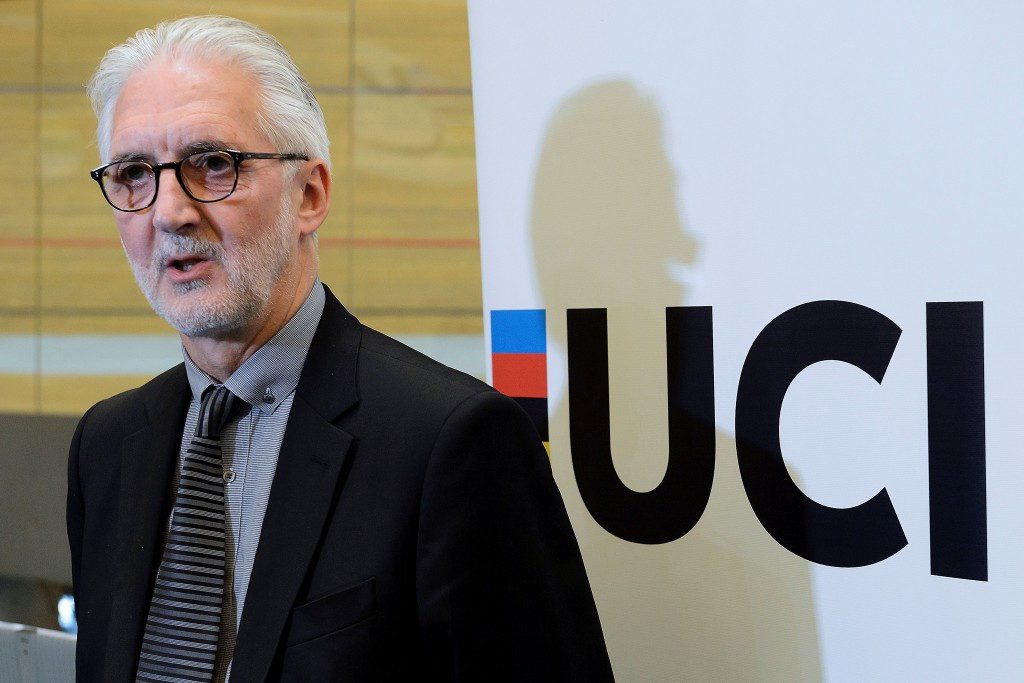UCI president says that unlike other sports, cycling isn’t in denial about doping
Brian Cookson says, "I think what we have done was necessary for our sport"


According to Brian Cookson the president of cycling’s governing body the UCI, many Olympic sports remain in denial about their doping problems not doing nearly enough to combat the use of performance-enhancing drugs.
In the lead up to the 2016 Rio Olympics, the World Anti-Doping Agency’s McLaren Report exposed a state-sponsored system of doping in Russia leading to all of Russia’s athletics athletes being banned from participating in the games. During the games, media and athletes questioned the participation of several swimmers and track athletes who had served doping bans prior to the Olympics.
Brian Cookson was elected as president of the UCI in 2013 to replace Pat McQuaid following the 2012 Lance Armstrong reasoned decision that exposed deep-seeded corruption in the UCI and tarnished road cycling’s reputation. Cookson told Fairfax Media that cycling is one of the sports that are actively fighting doping while many others continue to live in denial.
“I’ve often said that, for me, there are two groups of sports: sports that have a doping problem and are doing something about it – and I believe we’re in amongst the leaders in those – and sports that have a doping problem and are in denial and are not doing anywhere near enough about it,” Cookson said in the interview at the Olympics. “I think sooner or later those sports that are in denial and haven’t done enough are going to have – and perhaps are already having – the sorts of problems that we had.”
Cookson continued, “I’m not pointing the finger at any particular sport here, I’m just making the general point.”
Cycling has a dark past with PED but has been forced to implement measures intended to deal with the problem while other sports, such as athletics, are just now coming to grips with the reality. Though even cycling has not been exempt from controversy during the games with Russia’s silver medallist in the women’s time trial Olga Zabelinskaya having served a doping ban in 2014 to 2015. Initially, it looked like Russian athletes including three cyclists who had served doping bans would be prevented from competing in Rio but a ruling by the Court of Arbitration for Sport overturned that ruling days before the opening ceremonies.
During the games it was revealed Brazillian cyclist Kléber Ramos was suspended by the UCI for failing a drug test on July 31, just a week before he participated the men’s Olympic road race. A New York Times story looked at athletes who had been suspended in the past for doping violations who participated in the Rio Olympics, many of them being cyclists.
“I think what we have done was necessary for our sport,” Cookson said. “And I’m not at all complacent, but I think we’re in a good position as a sport. I think our credibility is much higher than it was a few years ago, but we need to keep working at that. As do all other sports.”
Cookson however said that people should have more confidence in the integrity of Russian cyclists because of the integrity of cycling’s testing system saying,”large numbers of Russian athletes are already in our system, in the biological passport, in the registered testing pool – whether ours, or their own, or the UKAD [United Kingdom Anti-Doping] one – and so they’re tested multiple times outside of Russia”.
“Whether or not a laboratory in Russia is tampered with doesn’t really have that big an impact on our sport when cyclists are competing all over the world and being tested all over the world,” Cookson said. “Especially not those that are in the biological passport. The independent processes we’ve put in place, I believe, wouldn’t allow me – even if I wanted to, which I don’t – to sweep anything under the carpet.”
